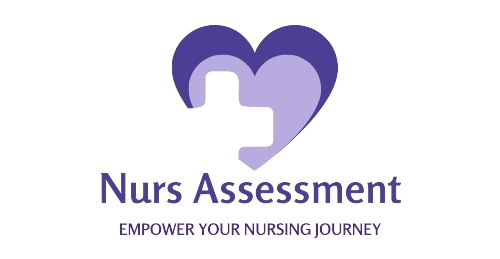Assessment 4: Final Care Coordination Plan
Name
Capella University
FPX4050
Dr. Name
April, 2024
Final Care Coordination Plan
For patient-centered healthcare, health literacy is essential for informed decision-making and effective management of health outcomes. This paper expands upon a foundational care coordination plan, targeting health literacy as a crucial determinant in patient empowerment. It integrates Healthy People 2030 frameworks with evidence-based practices to enhance understanding and engagement across diverse patient populations. In doing so, the plan emphasizes the role of care coordinators in navigating the complexities of health information to improve overall care efficacy (Adu et al., 2021).
Evidence-Based Design of Health Literacy Interventions
When designing patient-centered health interventions for health literacy, it’s important to focus on methods that have been shown to be effective. Studies suggest that health literacy can be greatly enhanced through interventions that provide information, effective communication, and structured education. These enhancements are often linked to better health outcomes, including changes in behavior that reduce disease severity and fewer hospital visits. A systematic review highlights the effectiveness of control interventions in improving health literacy in adults, which can lead to better health behaviors, especially in chronic conditions like cardiovascular diseases (Buhagiar et al., 2020).
Health literacy interventions have been categorized as functional, interactive, and critical. Functional literacy involves basic skills for understanding health information. Critical health literacy is the most advanced, involving the analysis of information to exert control over health-related life events. Understanding these distinctions can help tailor interventions to develop specific or generic skills required for health decision-making (Livingood et al., 2022).
Inclusion of Community and Stakeholders in Health Literacy Programs
In health systems, interventions are often created with the assistance of academic medical centers and are based on evidence-based guidelines. This approach ensures that the material presented is accurate and reliable. Interventions can be delivered in multiple formats, including webinars, in-person sessions, and mobile apps. For instance, webinars based on the British Dietetic Association’s guidelines for IBS have been reported as useful by participants (Albertson et al., 2022).
Moreover, engaging stakeholders such as clinicians, community health workers, patients, and their families in the development of health literacy interventions can improve the relevance and effectiveness of these programs. Participatory design or community-based participation research are approaches that incorporate stakeholder involvement. Studies have found that interventions that involve one-on-one diabetes self-management education by community health workers at patients’ homes, or the STAR-MAMA study that provided automated telemedicine self-support, were beneficial in enhancing health literacy and engaging patients in their care.
Developing a comprehensive patient-centered health intervention plan should thus incorporate these elements: evidence-based content, multiple delivery methods to cater to different learning preferences, stakeholder engagement, and a clear focus on the specific types of health literacy skills being targeted (Khatri et al., 2023).
Insights from Peer-Reviewed Articles for Ethical Considerations in the Design of Patient-Centered Health Interventions
In the realm of patient-centered health interventions, ethical considerations play a fundamental role in ensuring that care is both effective and morally sound. The ethical framework of person-centered care (PCC) is thoroughly discussed in a scoping review published in the journal “Frontiers in Psychology” where patient-centered care (PCC) not only respects the unique demands, preferences, and principles of patients but also fosters empowerment through active involvement in decision-making processes. This review highlights the shift from patient-centered to person-centered care, emphasizing the importance of a partnership between patient and provider, and acknowledging the patient’s narrative as crucial components of ethical healthcare delivery (Khatri et al., 2023).
PCC goes beyond mere medical treatment, incorporating the ethical foundation that recognizes the patient as an active participant and partner in care, bringing their history, strengths, and weaknesses into consideration for holistic treatment planning. This perspective aligns with Amartya Sen’s capability approach, which posits that all individuals, even when weak or sick, are seen as capable and should be engaged as such in their care plans. Lateral Sclerosis are examined in a paper published in “Frontiers in Neurology.” This article elaborates on ethical principles like autonomy and beneficence, which are pivotal in patient-centered interventions for individuals with severe and life-limiting conditions
Furthermore, In another study found in BMC Nursing, the ethical considerations of psychiatric mental health nurses regarding the use of coercive measures were explored. Ethical considerations in patient-centered interventions encompass the principles of informed consent, respect for autonomy, beneficence, non-maleficence, and justice, even when they require coercive interventions for their own safety. This includes ensuring that patients are provided with information in a comprehensible manner, their choices are respected, benefits are maximized while harm is minimized, and fair treatment is afforded to all (Khatri et al., 2023). Trustworthiness and credibility of interventions are achieved through transparency and ongoing dialogue between healthcare providers and patients, which also serves to enhance the quality and dependability of care.
In the context of public health, a study conducted by the World Health Organization and published in PLOS ONE reviewed the ethical issues in nutrition-related public health policies and interventions. This scoping review discusses the complexity of ethical considerations in public health, such as the importance of involving target populations in the development of policies and respecting cultural differences (PLOS). Addressing ethical issues involves consideration of how these policies may affect diverse population groups and ensuring that interventions do not inadvertently exacerbate health disparities. These peer-reviewed articles collectively advocate for interventions that are ethically sound and emphasize the necessity for healthcare professionals to engage patients as active partners in their care, respecting their narratives, capabilities, and ensuring that ethical principles guide all health-related decisions (Khatri et al., 2023).
Health Policy Analysis for Enhanced Care Coordination
Recent research underscores the importance of health policy in improving care coordination and the continuum of care. High-quality studies from various countries have shown that transitional care interventions initiated in hospitals can effectively reduce readmission rates and hospital costs. These interventions often include comprehensive care coordination efforts with follow-ups managed by specialized nurses and case managers. Positive outcomes such as increased patient confidence in managing their conditions, better quality of life post-discharge, and higher patient satisfaction have been noted. However, challenges like integration issues and resource limitations can impact the effectiveness and sustainability of these programs. This emphasizes the need for well-thought-out health policies that support effective care coordination models, integrating patient needs with organizational capabilities (Khatri et al., 2023).
Establishing Care Priorities in Evidence-Based Practice with Patients and Families
When discussing a care plan with a patient and their family, especially considering health literacy as the selected health problem, a care coordinator should prioritize several key aspects. First, it’s crucial to assess the patient’s self-rated health status and any chronic conditions they may have, as these factors significantly influence their health literacy needs and care requirements. Health literacy should be measured, possibly using tools like the Brief Health Literacy Screen (BHLS), to understand how well patients comprehend written medical information. This understanding will guide the care coordinator in tailoring communication and educational efforts to the patient’s literacy level (Khatri et al., 2023).
Another priority is evaluating the patient’s satisfaction with their care, including their experiences with the accessibility of care and the support they receive in care coordination. These elements are closely tied to their perception of care quality and can inform necessary adjustments in the care plan. The patient’s perception of their health and their ability to manage their health effectively (self-efficacy) should also be considered, as these are important indicators of how they will engage with the care plan. The care coordinator should ensure that the care plan is patient-centered, acknowledging the individual’s health literacy level, self-efficacy, and their unique health status. Making changes based on these assessments is crucial for effective care coordination and ensuring patient satisfaction with their care experience. This approach not only caters to the specific needs of patients with varying health literacy levels but also helps in building a supportive and understanding healthcare environment (Karam et al., 2021).
EBP and Healthy People 2030 in Health Literacy Care Plans
To effectively update the care coordination plan with a focus on health literacy, it’s important to apply evidence-based practices (EBP) and align with Healthy People 2030. The plan should begin by simplifying communication. This involves using plain language in both spoken and written forms, directly addressing functional health literacy. This step corresponds with Healthy People 2030’s aim of ensuring healthcare providers check patients’ understanding effectively. Next, the plan should incorporate interactive methods that help patients apply health information to their daily lives. This could involve digital tools, engaging workshops, or real-life scenarios, fostering interactive literacy and adhering to the Healthy People 2030 goal of involving patients in healthcare decisions to the extent they desire (Khatri et al., 2023).
Developing critical health literacy is another key aspect. This can include sessions on navigating the healthcare system and understanding the impact of personal health choices. These efforts align with Healthy People 2030’s goal to enhance overall health literacy among the population. The plan should also facilitate patient-centered decision-making. Shared decision-making empowers patients in managing their health, resonating with Healthy People 2030’s focus on improving patient engagement in healthcare decisions. This approach not only enhances patient experience but also contributes to better health outcomes, especially in the context of chronic conditions (Yoon et al., 2022). Incorporating these elements into the care plan will help in aligning with the broader goals of improving public health literacy as outlined in Healthy People 2030, ensuring a comprehensive approach to patient care.
NURS FPX 4050 Assessment 4 Final Care Coordination Plan Conclusion :
This paper highlights the significance of incorporating health literacy into care coordination plans for improved patient outcomes. By integrating evidence-based interventions, engaging stakeholders, considering ethical principles, and aligning with Healthy People 2030 goals, we can foster patient empowerment, enhance healthcare decision-making, and advance overall public health literacy (Rueda et al., 2023). Embracing these strategies ensures a patient-centered approach that respects individual needs and promotes collaborative care, ultimately leading to better health outcomes and a more effective healthcare system.
NURS FPX 4050 Assessment 4 Final Care Coordination Plan References :
Adu, P., Jurcik, T., & Dmitry, G. (2021). Mental health literacy in Ghana: Implications for religiosity, education and stigmatization. Transcultural Psychiatry, 58(4), 516–531. https://doi.org/10.1177/13634615211022177
Albertson, E. M., Chuang, E., O’Masta, B., Miake-Lye, I., Haley, L. A., & Pourat, N. (2022). Systematic Review of Care Coordination Interventions Linking Health and Social Services for High-Utilizing Patient Populations. Population health management, 25(1), 73–85. https://doi.org/10.1089/pop.2021.0057
Buhagiar, T. M., Schoenlein, M. H., & Smith, D. S. (2020). Ethical decision making in critical care: communication, coordination of care, and the practice of the clinical nurse specialist. Clinical Nurse Specialist CNS, 34(3), 93–95. https://doi.org/10.1097/NUR.0000000000000520
Karam, M., Chouinard, M. C., Poitras, M. E., Couturier, Y., Vedel, I., Grgurevic, N., & Hudon, C. (2021). Nursing Care Coordination for Patients with Complex Needs in Primary Healthcare: A Scoping Review. International journal of integrated care, 21(1), 16. https://doi.org/10.5334/ijic.5518
Khatri, R., Endalamaw, A., Erku, D., Wolka, E., Nigatu, F., Zewdie, A., & Assefa, Y. (2023). Continuity and care coordination of primary health care: a scoping review. BMC health services research, 23(1), 750. https://doi.org/10.1186/s12913-023-09718-8
Livingood, W. C., Bautista, M. A. B., Smotherman, C., Azueta, D., Coleman, J., Grewal, R., Stewart, E., Orlando, L. A., & Scuderi, C. (2022). Comparative study of different SES neighborhood clinics for health literacy and internet access. Digital Health, 8, 20552076221123715. https://doi.org/10.1177/20552076221123715
Rueda-Medina, B., Gómez-Urquiza, J. L., Casas-Barragán, A., Toledano-Moreno, S., Aguilar-Ferrándiz, M. E., & Correa-Rodríguez, M. (2023). eHealth literacy, internet use and health-related behaviour among health sciences students: a cross-sectional study. Contemporary Nurse, 59(2), 143–152. https://doi.org/10.1080/10376178.2023.2166547
Yoon, J., Lee, M., Ahn, J. S., Oh, D., Shin, S. Y., Chang, Y. J., & Cho, J. (2022). Development and validation of digital health technology literacy assessment questionnaire. Journal of Medical Systems, 46(2), 13. https://doi.org/10.1007/s10916-022-01800-8

